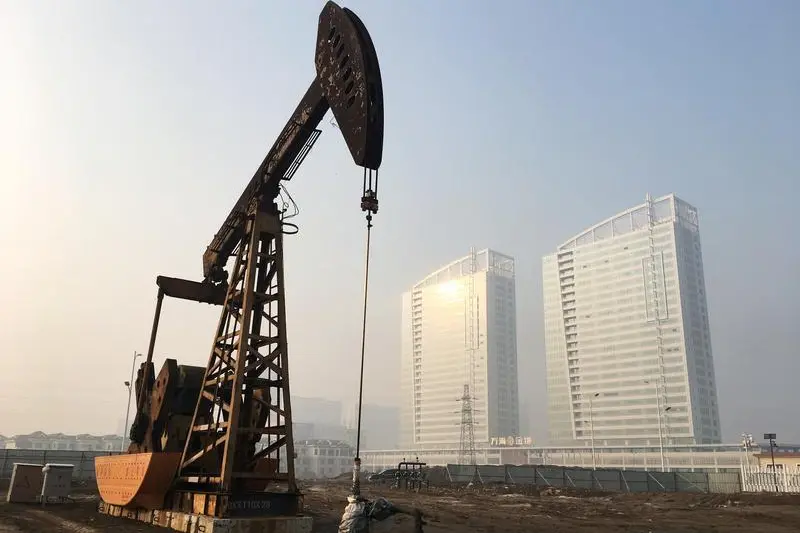PHOTO
(The opinions expressed here are those of the author, a columnist for Reuters.)
LAUNCESTON, Australia - China resumed adding to crude oil inventories in October as refinery processing slid from a record high and imports rose slightly from September.
About 560,000 barrels per day (bpd) was put into stockpiles in October, based on calculations using official data for imports, domestic production and refinery throughput.
This was a reversal from September, when refiners dipped into storage tanks, processing 240,000 bpd more than what was available from imports and domestic output.
Refiners in the world's largest crude importer have drawn on inventories in three months so far in 2023, in April, July and September.
However, the remaining seven months up to October have seen additions to stockpiles big enough to more than offset the draws, with about 680,000 bpd being stored in the first 10 months of the year.
China doesn't disclose the volumes of crude flowing into or out of strategic and commercial stockpiles, but an estimate can be made by deducting the amount of crude processed from the total of crude available from imports and domestic output.
China's refiners processed 63.93 million metric tons of crude in October, equivalent to 15.05 million bpd, according to National Bureau of Statistics data released on Nov. 15.
Throughput dropped from September's record 15.48 million bpd, largely as domestic margins contracted amid slowing demand growth, and exports eased as refiners bumped up against quota limits.
Crude imports were 48.97 million metric tons and domestic output was 17.33 million, giving a total of 66.3 million, equivalent to 15.61 million bpd.
Subtracting the refinery throughput from the total crude available leaves a surplus of 560,000 bpd to be put into commercial or strategic reserves.
China's pattern of crude oil imports and refinery processing this year has been to buy more crude when prices were low, and boost refining when domestic demand was recovering and export quotas were available, allowing them to take advantage of high margins for fuels in Asia, especially diesel.
Conversely, when crude prices have rallied, as they did from July onwards after top exporter and de facto OPEC+ leader Saudi Arabia cut an additional 1 million bpd of output, China has tended to trim imports in the subsequent months.
This suggests that Chinese refiners are quite happy to use their ample stockpiles to mitigate high crude oil costs.
FORECASTS TOO BULLISH?
The flows into storage so far in 2023 also call into doubt some of the optimistic forecasts over Chinese demand, with the International Energy Agency (IEA) forecasting China's demand will rise by 1.8 million bpd in 2023.
China's imports for the first 10 months of the year are 11.36 million bpd, which is 1.19 million bpd higher than for the whole of 2022.
To get a truer picture of the state of China's domestic consumption, the flows into storage tanks as well as the increase in refined fuel exports should also be taken into account.
Refined product exports were 33.2% higher in the first 10 months of the year at 53.09 million metric tons, which is about 1.40 million bpd if calculated using the BP Plc conversion rate of 8 barrels of product per 1 metric ton of crude.
Refined fuel exports were 1.18 million bpd for the whole of 2022, implying that they are up 220,000 bpd in the first 10 months when compared to 2022.
Add the increase in product exports to the storage flows gives a combined total of 900,000 bpd in the first 10 months of the year.
If this is subtracted from the increase of 1.19 million bpd in crude imports, it means that actual domestic consumption is only 290,000 bpd more than it was in 2022.
This is hardly a bullish number, and suggests that some of the IEA's optimism, which is largely shared by OPEC+, on the state of China's demand is overstated.
While inventory flows and re-exporting crude as refined products are part of demand growth, relying on them to meet bullish China forecasts is likely a misleading strategy.
The opinions expressed here are those of the author, a columnist for Reuters.
(Editing by Stephen Coates)





















